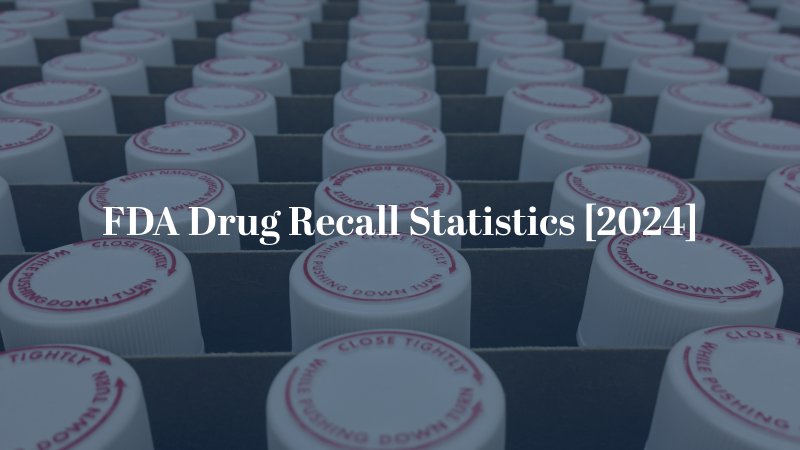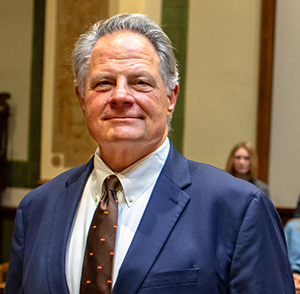Joel Silverman
Defective Drug Recalls Lawyer
Joel Silverman was born and raised in Las Vegas, Nevada. He moved to Missoula in 1992, and received his B.A. in Mathematics and B.S. in Forestry from the University of Montana in 1997. He received his law degree from Lewis and Clark College in 2003 and an LL.M. (master’s degree) in Taxation from the University of Washington in 2004.
Joel’s business career began in high school, when he started his own fly tying company and taught fly tying and fly-fishing classes. His fly-fishing business continued through college and law school. During college, Joel took 10th place in a world fly-tying competition. He continued to use his business skills after graduating from college, by helping fly-fishing lodges, around the world, to improve their businesses through marketing and improved business techniques.
After law school, Joel spent his first three years of private practice in Butte, Montana, assisting clients with business matters, entity formation, tax planning for businesses and individuals, Wills, Trusts, elder law, property transactions, and liquor and gambling issues.
Joseph P. Cook
Defective Drug Recalls Lawyer
“A winning attitude and optimism are necessary to fight and win versus insurance companies and large corporations. Being a trial lawyer means bringing that mindset to every case, making it contagious and tirelessly pursuing civil justice on behalf of the injured and exploited. I am honored and humbled by the trust my clients have in me, and in return I give them my absolute best every time.”
Being hurt by someone else’s negligence should not leave you to be beaten down by their insurance company, and Joe Cook and his team have the experience and resources to fight back and maximize results. His work has resulted in record setting, multi-million dollar verdicts in medical malpractice and auto collision cases in Montana, and he has been recognized by his peers with the prestigious MTLA Trial Lawyer of the Year award.
Growing up on his family’s ranch just east of Billings, Joe learned hard-work and creativity can solve nearly any problem. He was an active member of 4-H, American Degree receipt in FFA, and President of the Montana Junior Angus Association.
Roland B. Durocher
Defective Drug Recalls Lawyer
Roland was born in Bozeman, and raised in and around Great Falls, Montana. After graduating as class valedictorian from Great Falls High, in 1988, he attended the University of Montana on a Presidential Scholarship. He graduated from the University with high honors, earning a degree in economics, in 1991.
He then went on to law school at the University of Montana, during which time he worked both in a large law firm, and as an intern in the USDA legal department. Following his graduation in 1994, he returned to Great Falls to start a private practice. He joined the present firm in 1996. Roland is a successful trial attorney, and active member of the legal and civic communities. He is a member of the American Board of Trial Advocates, an exclusive invitation only organization of plaintiff and defense trial lawyers consisting of roughly one-half of one percent of all attorneys in the nation. He is AV rated by Martindale-Hubble, and the recipient of the Robert P. Goff pro bono award and the Montana Trial Lawyers Association (MTLA) appellate advocacy award. He has a wife and three daughters. Roland and his family enjoy staying active outdoors, including hunting, fishing, boating and golfing.
Jamie Teague
Defective Drug Recalls Lawyer
Nick was born and raised in Montana, growing up in the Bitterroot Valley. He obtained a Bachelor of Arts degree, with honors, in Political Science and International Relations from Carroll College before going on to obtain his Juris Doctorate degree from Gonzaga Law School in Spokane, Washington (“let’s go Zags!”). During law school, Nick served as the Gonzaga Law Review’s Managing Editor and received a CALI Excellence for the Future Award for Legal Research and Writing as well as being awarded “Best Brief” during the school’s Linden Cup advocacy competition.
In addition to his legal studies, Nick worked for a private law firm in Spokane practicing criminal defense and personal injury law, clerked for the Washington Court of Appeals, and volunteered as a Special Deputy Prosecutor for the Spokane County Attorney’s Office.
Following law school, Nick returned to his home state and joined the firm of Skjelset & Geer in Missoula practicing primarily plaintiff’s civil litigation and criminal defense.
Before founding Trailhead Law in 2016, Nick served as a Deputy County Attorney for Yellowstone County and as Chair of the Yellowstone County DUI Task Force.
David R. Paoli
Defective Drug Recalls Lawyer
Our founding attorney, David R. Paoli, has been a licensed attorney since 1986. David grew up in Great Falls, Montana. He graduated with honors from the University of Montana School of Law and has held a Super Lawyers designation since 2009.
He has been listed in The Best Lawyers in America since 2007 and has an AV Preeminent Rating from Martindale-Hubbell*, the highest possible rating in both legal ability and ethical standards. David served as a law clerk to Judge Jack D. Shanstrom, United States District Court and on the Montana Human Rights Commission. In 2011, the Montana Trial Lawyers Association recognized him as Trial Lawyer of the Year. See what kinds of cases and settlements he has won.
Jeremy Cotten
Defective Drug Recalls Lawyer
Philip McGrady has represented people from all across Montana and the United States. He has argued cases on behalf of his clients before the Montana Supreme Court and the Ninth Circuit Court of Appeals. Philip is a graduate of the University of Montana School of Law. He received his undergraduate degree from James Madison University in Harrisonburg, Virginia.
While attending the University of Montana Law School, Philip was a member of the National Moot Court Team, he clerked for United States Magistrate Judge Leif Erickson, and also taught first year law students legal research and legal writing.
Following graduation, Philip clerked for Superior Court Judge Dan Hensley in Anchorage, Alaska, and then for Yellowstone County District Court Judge Russell Fagg in Billings, Montana, before joining Edwards, Frickle & Culver in 2005.
Jared Frickle
Defective Drug Recalls Lawyer
Jared was born and raised in Montana and has a deep-rooted love for the Big Sky County and its people. He was born in Lewistown and grew up in Billings, attending public schools in the area. He graduated from MSU-Billings with a degree in sociology and a minor in political science. Afterwards, he opted to follow in his father’s footsteps and went on to obtain his law degree from the University of Montana.
Following graduation, Jared returned to Billings to clerk for the Honorable Gregory R. Todd in the Montana Thirteenth Judicial District Court. Over the last decade, Jared has gained invaluable experience as an attorney for several high-profile litigation firms. In 2015, he joined the Yellowstone Area Bar Association as a board member and served in this position for four years. In 2019 he became president of the Association. To date, he is still active in the local legal community and is always willing to lend an ear to anyone who has a legal question or issue.
Having been an attorney for more than a decade, Jared has extensive personal injury experience in many types of cases – from everyday fender benders to catastrophic injuries and tragic wrongful deaths. Jared is passionate about assisting members of his community and enjoys helping clients with their respective cases during their time of need.
Tony Dalton
Defective Drug Recalls Lawyer
Tony Dalton was born and raised in Moab, Utah. He moved to Montana in 2010 to attend and play basketball for Carroll College, and it did not take long for him to fall in love with the area. He received his B.A. from Carroll College with distinction and then graduated Cum Laude from the University of New Mexico Law School, where he received the Hugh B. Muir Award for excellence in tax law. Tony practiced estate planning, probate, and elder law in Albuquerque, New Mexico. He and his wife, a Helena native, have returned to Big Sky Country for good with their two children and dog.
Tony was attracted to the Silverman Law Office because of its team approach, its commitment to putting the client at the center of everything the firm does, and its alignment with his mission and values. He takes pleasure in empowering individuals and business leaders to prepare for and traverse difficult and defining situations. The opportunities to help people solve stressful problems, move forward in their lives, and develop the best plan for their unique situations are what Tony enjoys most about being an attorney.
Tony joined the Silverman Law Office as an Associate Attorney focusing on estate planning, probate administration, tax planning, business development, and real estate transactions. He is licensed to practice in both Montana and New Mexico.
What is the reason for drug recall?
Drug recalls are critical safeguards in the pharmaceutical industry, designed to protect public health when medications are found to be unsafe or defective. While many recalls have occurred over the decades, some have had far-reaching and devastating consequences. Among these, the recall of thalidomide stands out as the most serious in history, not only for the scale and severity of harm caused but also for the profound changes it forced in drug regulation worldwide.
Understanding Drug Recalls and Their Severity
A drug recall is initiated when a medication is found to pose a risk to health, whether due to contamination, mislabeling, adverse side effects, or manufacturing errors. Regulatory agencies such as the U.S. Food and Drug Administration (FDA) classify recalls into three categories based on the level of risk:
Class I: The most serious, involving products that could cause serious health problems or death.
Class II: Products that might cause temporary or medically reversible adverse health problems.
Class III: Products unlikely to cause adverse health reactions but that violate labeling or manufacturing laws.
The seriousness of a recall is typically judged by several criteria: the number of people affected, the severity and permanence of health consequences, the duration the drug was on the market, and the broader impact on public trust and regulatory practices.
Thalidomide: The Catastrophic Recall
Thalidomide was developed in the 1950s by the German pharmaceutical company Chemie Grünenthal and marketed as a sedative and remedy for morning sickness in pregnant women. It was sold in nearly 50 countries, often without prescription, and was widely regarded as safe due to its lack of overt toxicity in adult users. However, thalidomide had never been adequately tested for safety in pregnant women or for its effects on fetal development.
Between 1957 and 1961, an estimated 10,000 to 20,000 children worldwide were born with severe birth defects after their mothers took thalidomide during pregnancy. These defects included phocomelia (limb malformations), deafness, blindness, heart defects, and other severe disabilities. The tragedy was compounded by the fact that many affected infants died shortly after birth, and survivors faced lifelong physical and social challenges.
The scale and severity of the thalidomide disaster were unprecedented. In some countries, entire generations bore the scars of this oversight. The recall of thalidomide began in 1961, but by then, the damage was irreversible. The drug was never approved for sale in the United States, largely due to the vigilance of FDA reviewer Dr. Frances Kelsey, but it was distributed to about 20,000 American women through clinical trials, resulting in at least 17 documented cases of birth defects in the U.S.
Regulatory and Social Impact
The thalidomide crisis fundamentally changed the way drugs are regulated worldwide. In the aftermath, governments instituted stricter requirements for pre-market testing, especially regarding teratogenic (birth defect-causing) effects. In the United States, the 1962 Kefauver-Harris Amendments mandated that drug manufacturers provide proof of safety and efficacy before approval, and established rigorous clinical trial protocols. Similar reforms were enacted in Europe and elsewhere.
The disaster also led to the establishment of pharmacovigilance systems-formal mechanisms for monitoring and reporting adverse drug reactions. Public trust in the pharmaceutical industry and regulatory agencies was deeply shaken, prompting calls for greater transparency and accountability.
Comparing Thalidomide to Other Major Recalls
While thalidomide is widely regarded as the most serious drug recall, other recalls have also had significant impacts:
Vioxx (Rofecoxib): Withdrawn in 2004 after being linked to an increased risk of heart attack and stroke, Vioxx was used by over 20 million Americans and may have caused up to 140,000 cases of serious coronary heart disease in the U.S. alone. The recall led to billions in litigation and criticism of the FDA’s drug monitoring practices.
Fen-Phen (Fenfluramine/Phentermine): A popular weight-loss combination withdrawn in 1997 after being linked to heart valve damage and pulmonary hypertension, resulting in thousands of lawsuits and over $13 billion in settlements.
Diethylstilbestrol (DES): Prescribed to pregnant women to prevent miscarriages, DES was later found to cause rare cancers and reproductive problems in the daughters of women who took it, affecting multiple generations.
Despite the scale of these recalls, none matched the severity and permanence of the harm caused by thalidomide, particularly because its victims were newborns who suffered lifelong disabilities.
Lessons Learned and Ongoing Vigilance
The legacy of thalidomide endures in the rigorous drug approval processes now standard worldwide. Every new medication must undergo extensive animal and human testing, with special attention to vulnerable populations such as pregnant women. Regulatory agencies maintain robust systems for post-market surveillance, and the pharmaceutical industry is held to higher standards of transparency and accountability.
Thalidomide itself, after decades of prohibition, has found new uses in treating certain cancers and leprosy complications, but its distribution is tightly controlled to prevent exposure during pregnancy.
Conclusion
The thalidomide recall remains the most serious in pharmaceutical history, both for the catastrophic harm inflicted on thousands of children and families and for the sweeping reforms it triggered in drug regulation. Its legacy serves as a somber reminder of the consequences of inadequate testing and oversight, and as a catalyst for ongoing vigilance in safeguarding public health.












